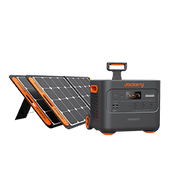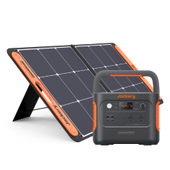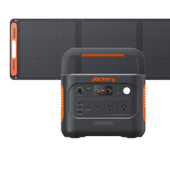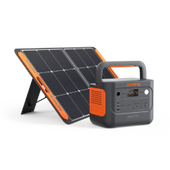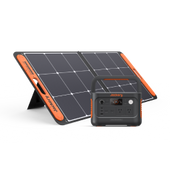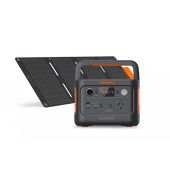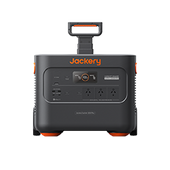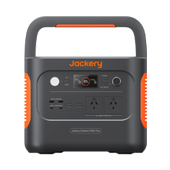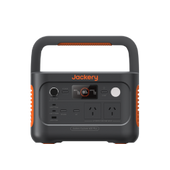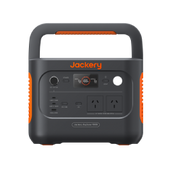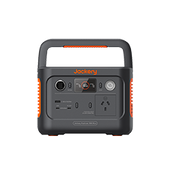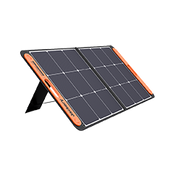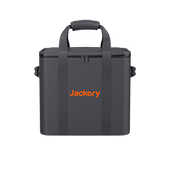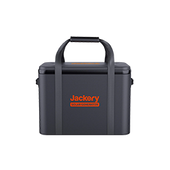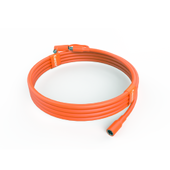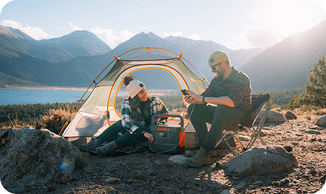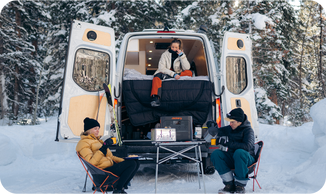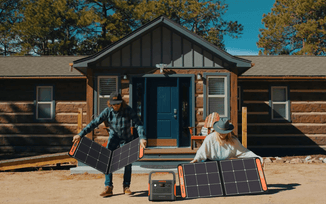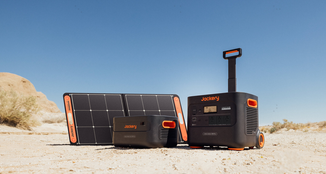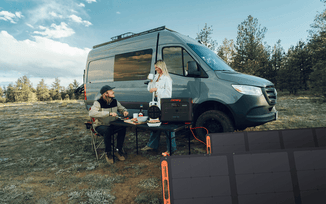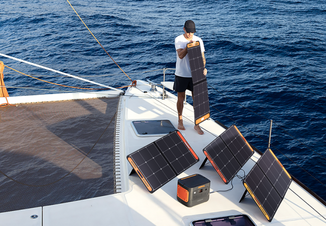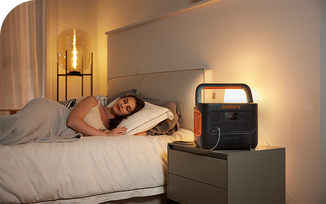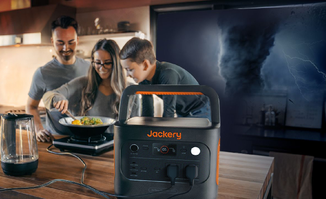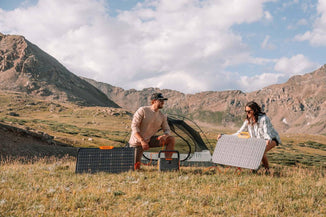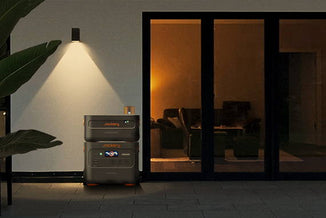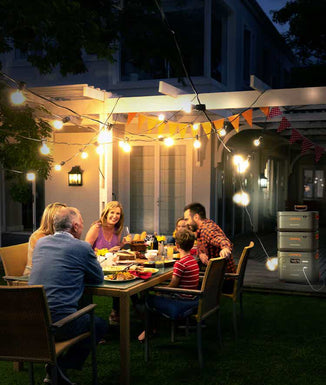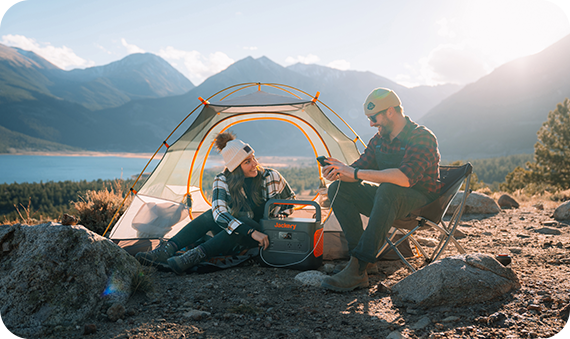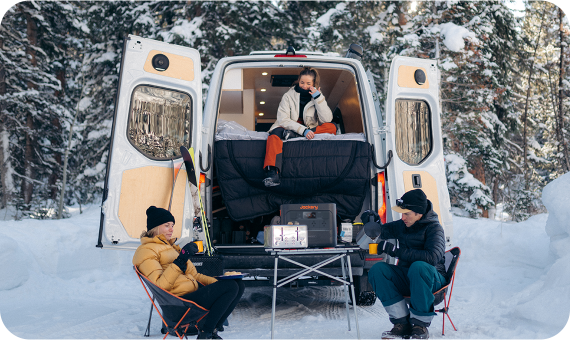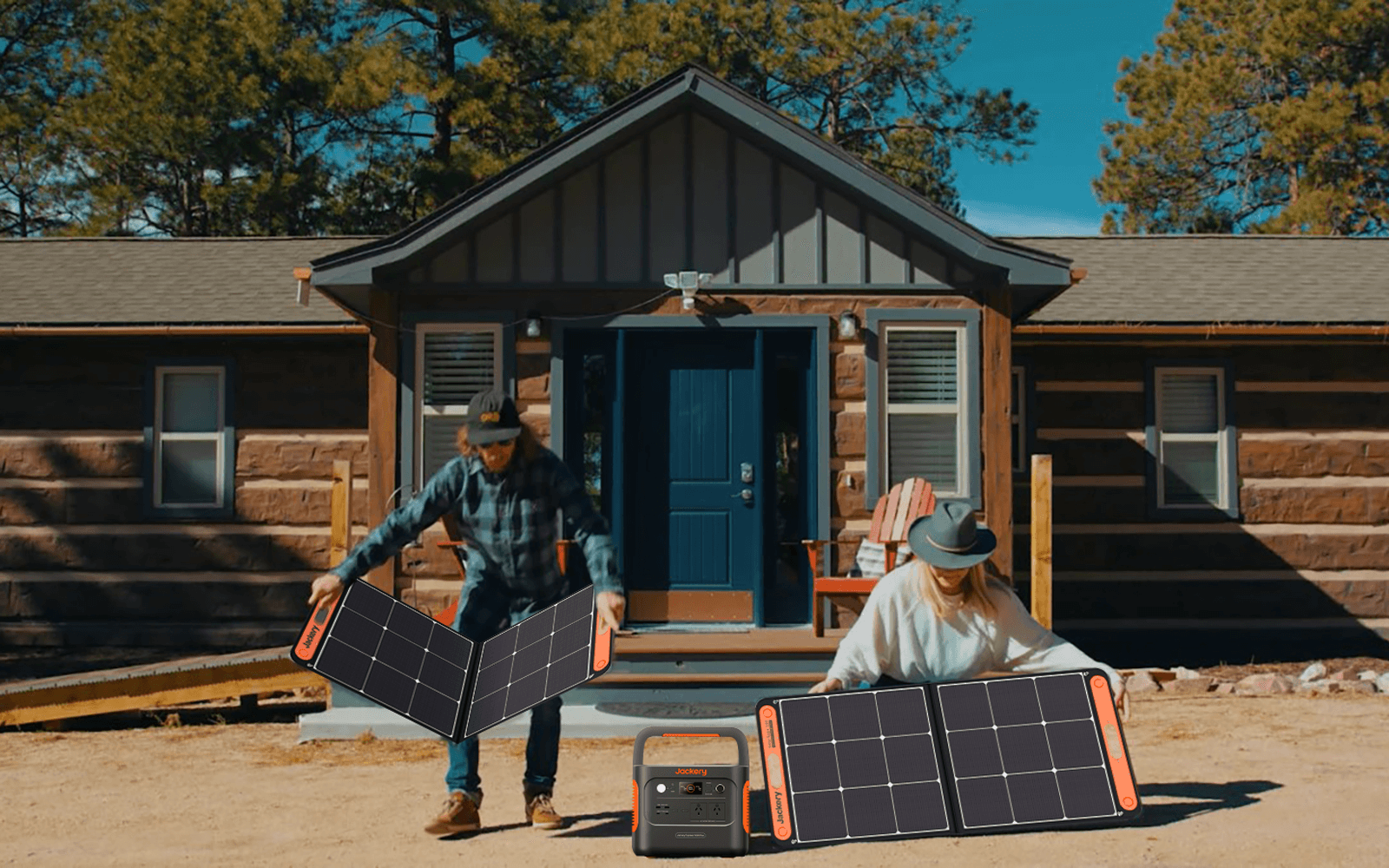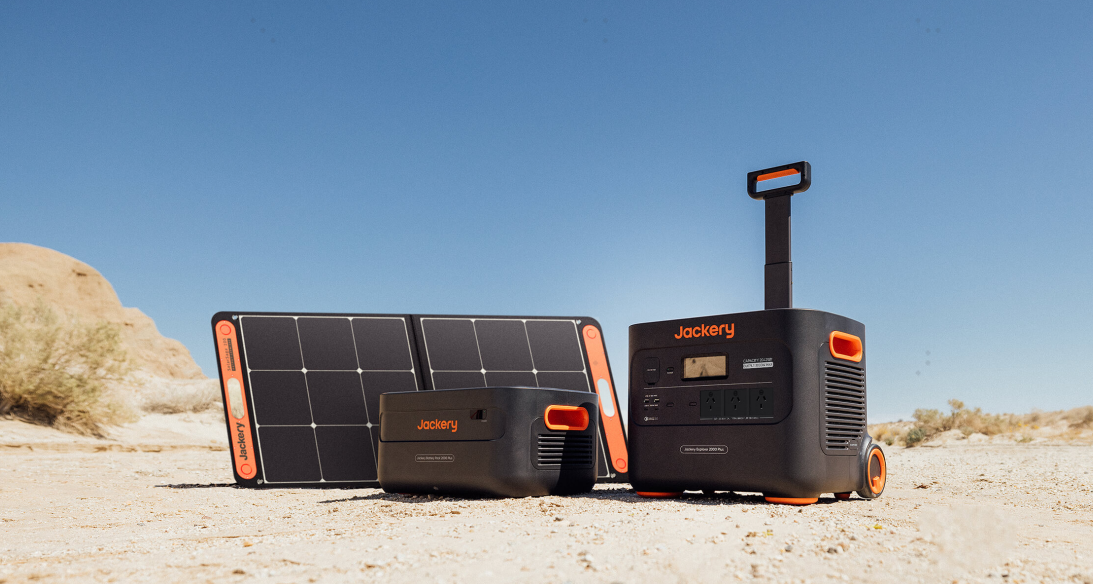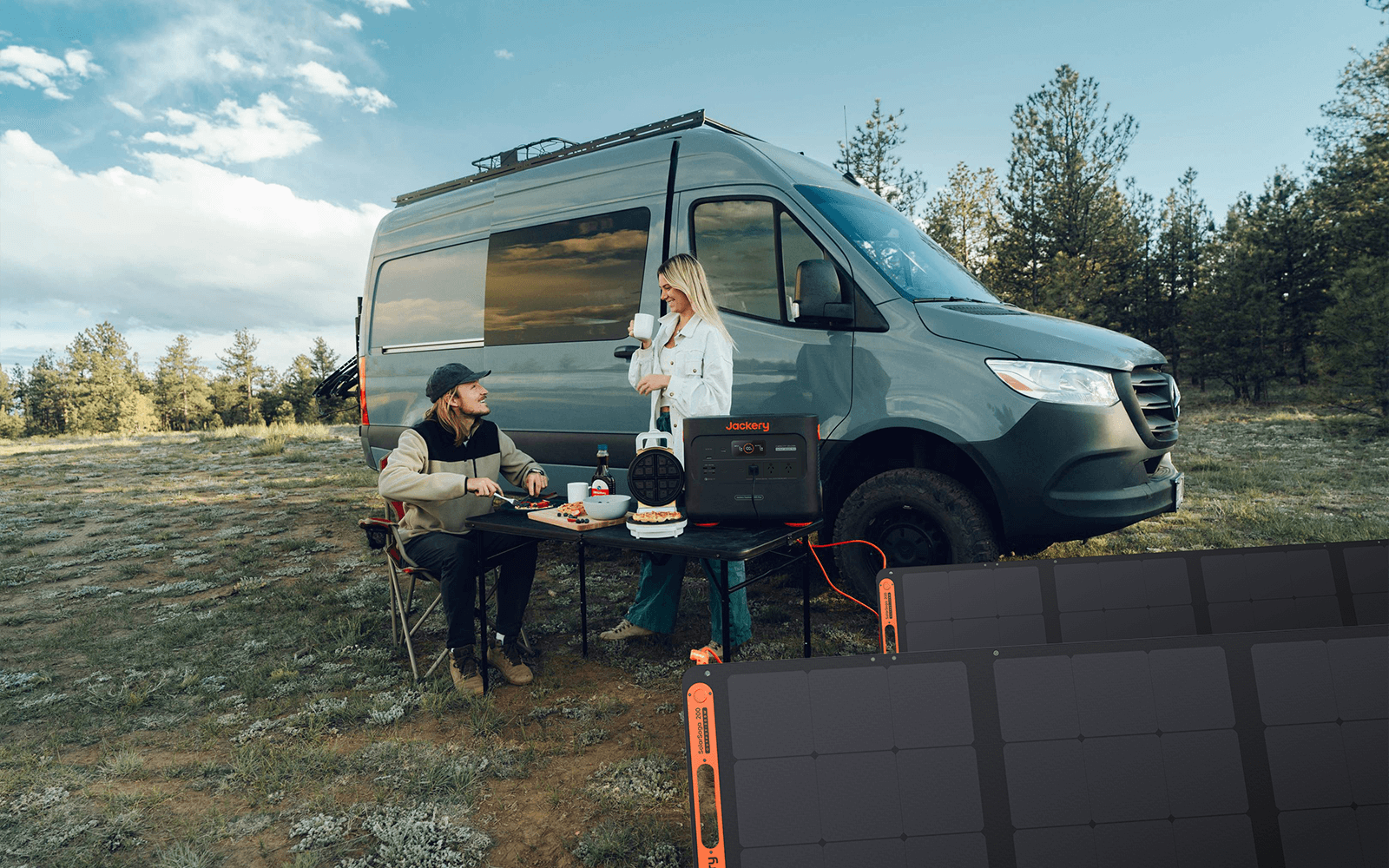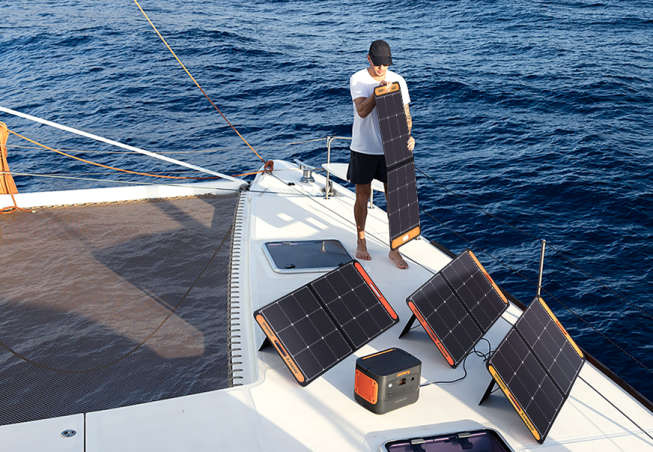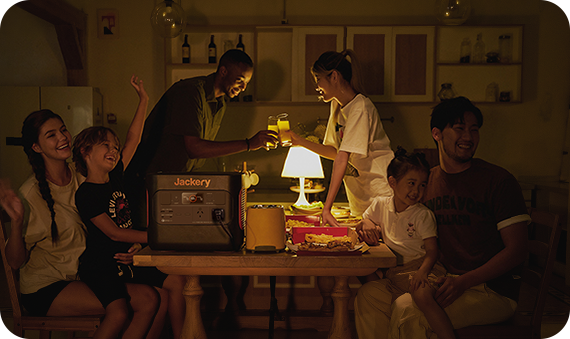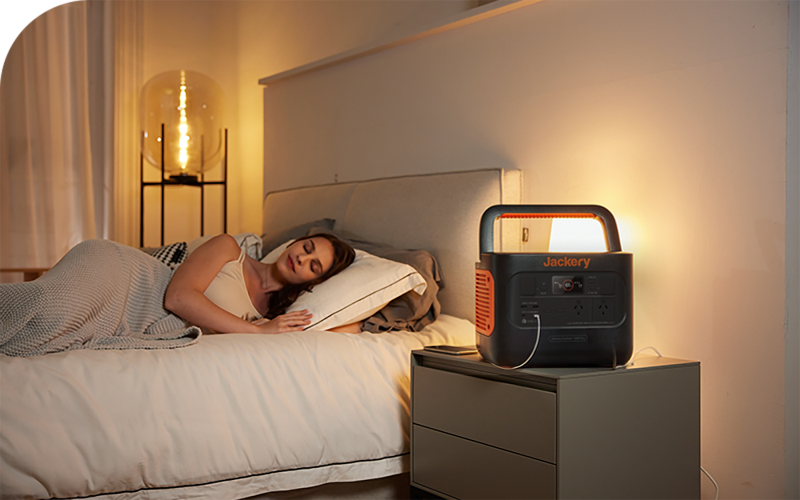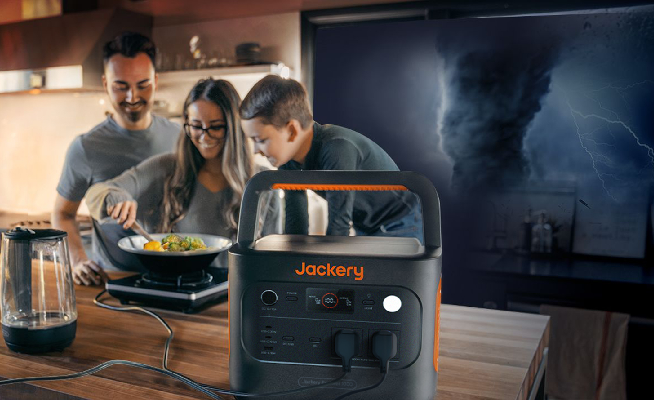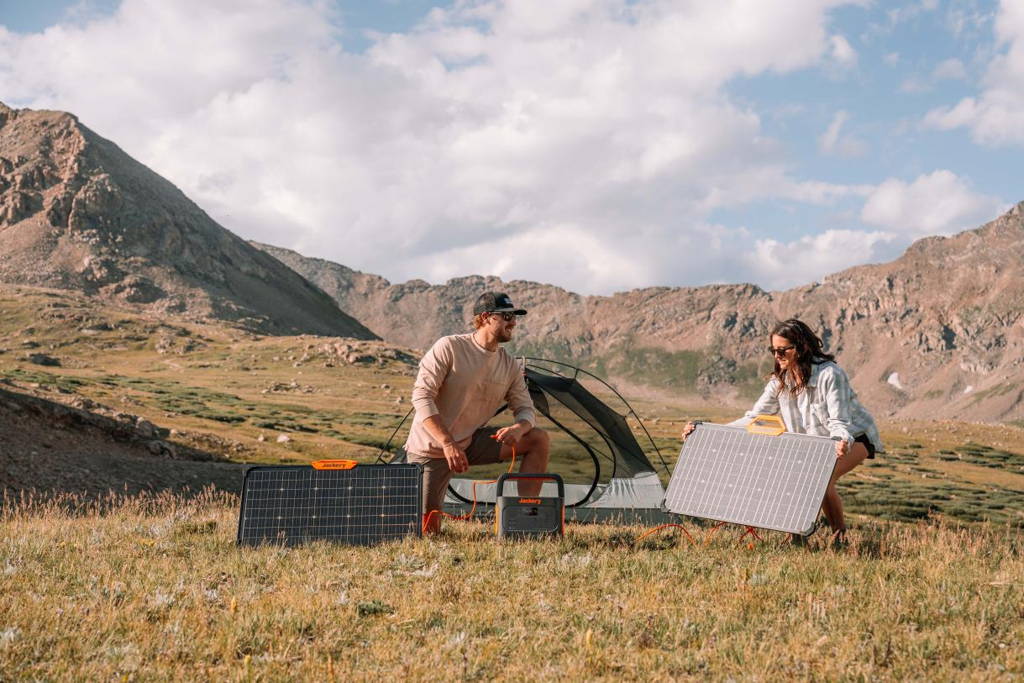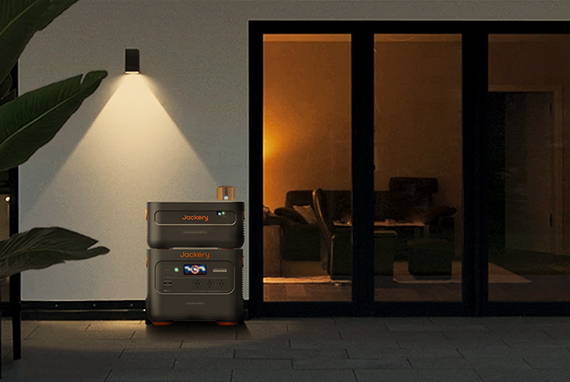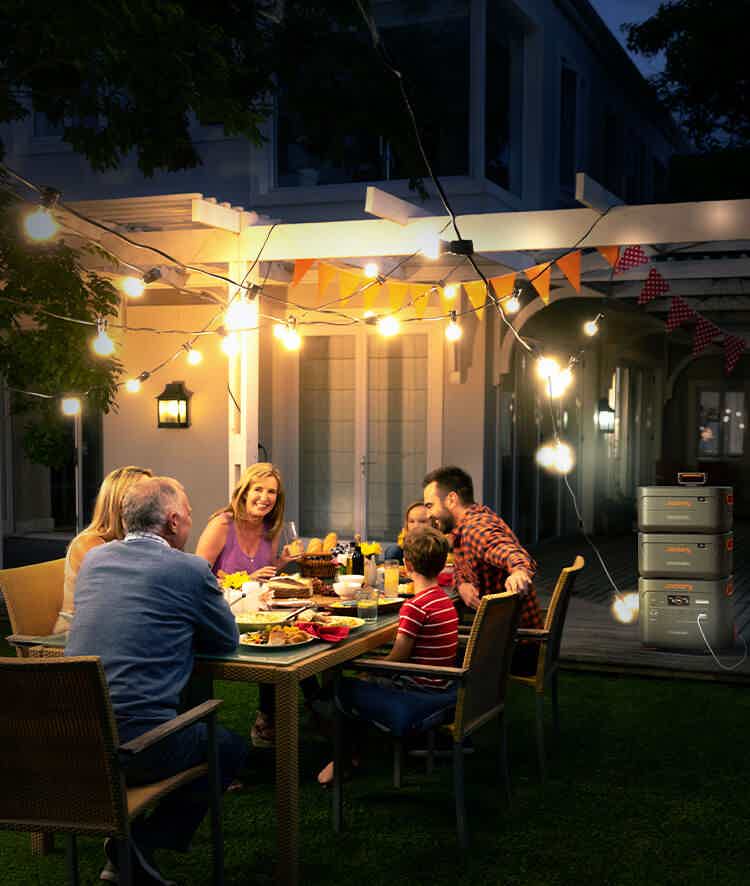Full-Time RV Living: What It's Really Like?
Full-time RV living presents challenges that you might not expect when compared to living in a regular house or apartment. And, it's not just the price of gas.
When it comes to living in an RV all the time, whether you're stationary or always on the road, the simplicity of the lifestyle is its biggest draw. You won't pay property taxes. You won't have to pay a mortgage in addition to making payments on the RV. You have the option of pulling up stakes and going anywhere you want, saving on accommodation the whole time.
Almost 10 million households in the United States own RVs. Of those, a million people live in their RVs full-time. Most of the folks who live full-time in their RVs are between 35 and 55 years old. Only about 2% of them have children.
Can Living in an RV Full Time be Possible?
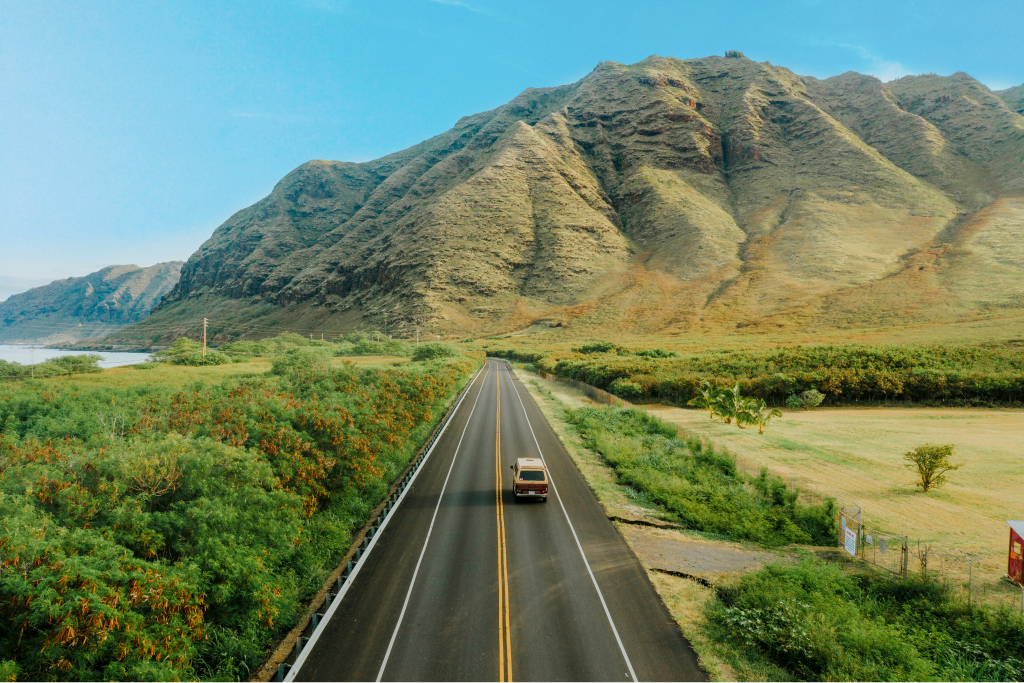
Yes, it is possible to live in an RV full-time. With the right planning, preparation, and attitude, you can successfully transition into living in your RV.
Pros:
- No mortgage
- No property taxes
- Not tied down in one place
- Camaraderie with other RVers
- More than 16,000 RV campgrounds in the United States
- Great chance to travel the country
- Traveling in both comfort and style
- Much lower costs than staying in hotels and motels
- No unpacking
- Closer to nature, particularly when boondocking
Cons:
- Smaller than a house or apartment
- Forced downsizing through limited storage space
- Dangerous weather in certain areas
- Climate control issues
- Depreciation
- Maintenance costs
- Tedious travel between stops
- Lack of privacy and/or alone time
- Lack of routine
- Intermittent internet
Rearing children in an RV is tough, which is why so few people who live in their RVs all the time have children. Almost all RVers telecommute because they're never in the same place for a long time. Sometimes, they'll do work at the campgrounds where they stay in exchange for site rental. That means that it pays to be handy as an RVer.
How to Prepare for Full-Time Stationary RV Living?
These are the things to know before living in your RV full-time.
1. Research – Research the area you want to live in and make sure it has what you need, such as medical care, groceries, entertainment, etc.
2. Budget – Make sure your budget will cover all of the necessary costs of living in an RV full-time. This includes rent/site fees, gas, food, utilities, and insurance.
3. Make a List – Make a list of what you need in your RV to live comfortably, and make sure it has all the amenities you need for an enjoyable life on the road.
4. Insurance – Check with your existing auto insurance provider to see if they cover RVs as well. Otherwise, shop around for the best coverage.
5. Maintenance – Make sure to keep up with regular maintenance and repair on your RV, so it is safe and dependable.
6. Storage – Consider getting a storage unit for items you don’t need in your RV full-time such as seasonal decorations or extra furniture.
7. Connect – Look for RV clubs or forums online to connect with other full-time RVers, share tips and advice, and make friends on the road.
The most important thing is that you have to get rid of lots of "stuff." Your RV is going to be smaller than your house or apartment, so you'll either have to store your stuff or get rid of it somehow. Have a tag sale. Donate items to charitable institutions. Give things to friends and family. If you're going to store things, then get the right kind of boxes and rent a climate-controlled locker to protect your stuff.
Full-time RV living is a great way to see the world while having all of your home comforts along with you. Just be sure to do your research and be prepared for the challenges that come with living in an RV all the time. With a little effort, you can make this lifestyle work for you.
What to Expect in a Full-Time RV Living?
When living in an RV full-time, you can expect to experience the joys of travel with the comforts of home. You will have more flexibility and freedom as you travel around, but you also face challenges like limited space and lack of privacy.
1. Living in an RV Full-Time Cost
Living in an RV full-time can cost anywhere from $3000 to $7000 per month, depending on your lifestyle and where you travel. This includes the cost of rent/site fees, gas, food, utilities, and insurance. It pays to be handy as an RVer so you can save money on maintenance costs.
2. Full-time RV Living Must-Haves
When living in your RV full-time, it is important to have the right amenities on board to be comfortable. This includes a inverter, air conditioning, water filtration system, bathroom fan, TV antenna, and a solar generator like Jackery Solar Generator 1000 Pro.

An alternative power source can help you cut costs on electricity and gas. Jackery Solar Generator 2000 Pro is one of additions to the Jackery Solar Generator family and is designed with a backup battery that ensures you never run out of power. It provides 2000W of continuous power output. Its lightweight, compact design makes it easy to transport and store in your RV.
Also, make sure you have plenty of storage to keep what you need and store the items you don't. Lastly, a reliable internet connection is a must-have for most full-time RVers. It allows them to stay connected with family and friends, and do their jobs while living on the road.
3. Full-Time RV Living for Beginners
RV living for beginners can be challenging due to the need to adjust to a smaller space, learn new habits, and develop appropriate strategies for managing resources. It's important to invest in the right RV accessories, such as water filtration systems, solar panels, and reliable internet connections.
It is also essential for full-time RVers to stay connected to family and friends, find ways to contribute back to society and remember that RV living is more than just a place to sleep. With the right attitude and preparation, it can be an exciting lifestyle filled with adventure and exploration.
4. Full-Time RV Living with Kids
Raising a family while living full-time in an RV comes with a challenge, but it can also be a rewarding experience. It’s important to make sure that your RV is equipped with the right amenities to accommodate your family, such as plenty of storage space, comfortable beds, and safe areas for children to play.
Full-time RV living with kids requires planning ahead and knowing what activities you can do together. This can include visits to parks, museums, and other family-friendly locations. It's also important to have a designated area for learning activities and homeschooling.
Additionally, make sure your RV has the necessary safety measures, such as anti-slip floor mats and a secure trolled locker to protect your stuff. Having these precautions in place will help ensure your family has an enjoyable and safe RV experience.
Full-Time RV Living Tips and Tricks
- Expect a slower-paced lifestyle
When you can go anywhere you want whenever you want, there's no need to rush, rush, rush. "Getting there is half the fun," should be the motto for all RVers.
- Find a job that fits this lifestyle
You won't have four walls and a desk anymore. If you need to work, then find something that you can either do while on the road or temporarily when you stop.
- Diversify your experiences
Branch out into new things. Develop new interests, such as birdwatching, geocaching, and even rock collecting. Pick things that you can do with others as well as things that you can do by yourself.
- Find the sweet spot between planning and going with the flow
Having a routine can be stilted and boring. Conversely, being carefree nomads will also get old after a while. Talk about how to do both so that everyone who's living in the RV can become fulfilled both physically and emotionally.
- Build a community
You've likely left old friends behind, so it's time to make new ones. Visit other campers at RV campgrounds. Invite each other for cookouts, canoe trips, hikes, or even just a day at the beach. Cultivate those friendships the same way you did back home.
- Embrace the travel life
The idea isn't always to put down roots. Even when you stay in one place longer than just a little while, it shouldn't ever be permanent. You've chosen to live life in your RV, so the open road beckons you to new adventures.
- Get a reliable solar power source
You won't always be in a park with full hookups. Even if you like to "rough it," it's a good idea to have a solar generator, such as the Jackery 2000 Pro, in case of an emergency. You never know when you might need power in an instant.
FAQs About Full-Time RVing
1. What state is best for full-time RVers?
That depends on what you classify as "best." Queensland is a popular destination for RVers because of its warm weather, beautiful beaches, and diverse natural attractions. Some of the top spots for RVers in Queensland include the Sunshine Coast, the Gold Coast, and the Great Barrier Reef. If you love the outdoors and want to explore Australia's rugged terrain, Western Australia is better for you。RVers can enjoy scenic drives through the outback, explore national parks.
2. What RV brand is best for full-time living?
Class-A RVs are luxury models, big and spacious. Class-C RVs, however, usually provide more sleeping space than Class-As and cost far less. Both are great for living in all the time.
3. How to live in an RV in the winter?
A heated water hose is your primary concern, particularly if you connect to municipal water in an RV park. You'll also need a pressure regulator so that neither your tank nor your hoses burst. RVs have notoriously bad insulation, so you'll probably need a propane tank for heating. Keep your sewer hose off the ground. If it freezes, then the resulting mess will be quite distressing.
Conclusion
As you build your friendships and expand your RV community, be sure to share some of your RV living tips and tricks. Even experienced RVers might not think of everything, and if you're a newbie, then you can learn from others and improve your experience. Never forget your solar generator either. Quite literally, it can save your life.
To find out more about Jackery and its products, subscribe to the Jackery newsletter. We're sure that you will be able to find what you need as you set out on your big RV adventure of a lifetime!

